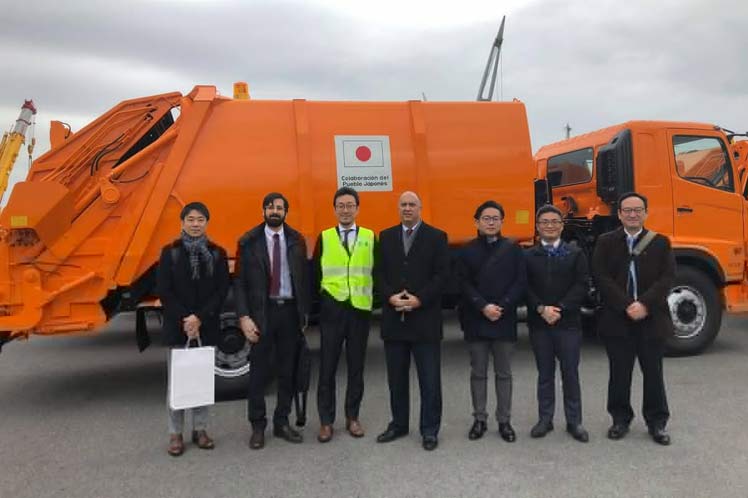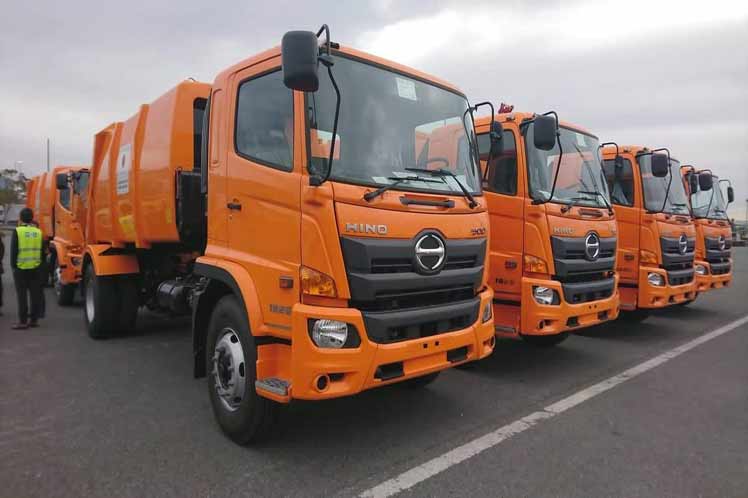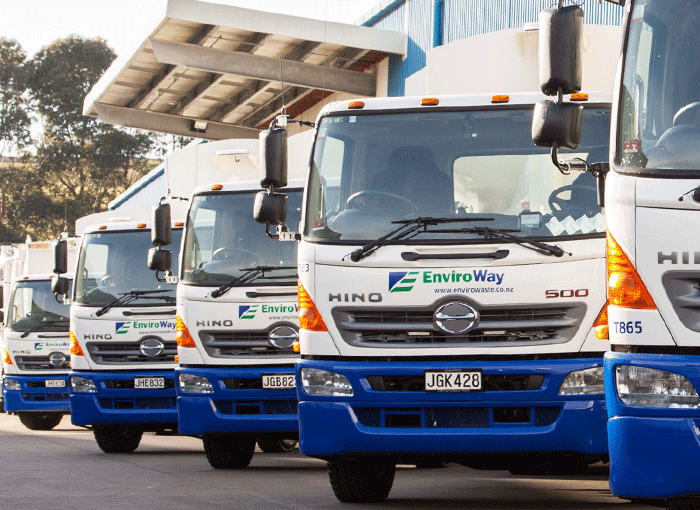Cuba Continues To Rely On Donated Garbage Trucks
/Compilation From Granma
Havana, Republic of Cuba
30 October 2019
Around 100 collector trucks for the collection of solid waste are being conditioned in Japan for shipment to Cuba in March 2019, as part of the ten million dollars that the Japanese government donated for the cleaning of Havana in the face of its 500 years.
According to Granma, the first phase of the collaboration project also includes the supply of specific tools for the repair of equipment and spare parts for Hino vehicles.
The trucks will arrive to the Island through the Sumitomo Corporation, one of the ten Japanese companies participating in the thirty-sixth edition of the International Fair of Havana FIHAV 2018.
María Isabel Valdés Jiménez, assistant manager of the entity, assured the official newspaper that “in addition to the proven quality of the trucks is that of the application that constitutes the collector, whose manufacture is carried out by the company Jokutong, one of the best in its specialty “in Japan.
The manufacturing process began after the tests carried out in the Cuban capital by Japanese specialists, to take into account the operating conditions of the collector equipment.
Currently the collection of garbage and solid waste is one of the most serious problems in Havana. The situation causes constant complaints from the inhabitants. The city urgently needs at least 92 collector trucks and currently only works with an average of 40 or 42. There are 40 pieces of equipment pending repair in the workshops, according to a recent government meeting that addressed the issue.
Valdés Jiménez said that the Japanese donation will come in three items. The government, unable to properly manage garbage for decades, has placed its hopes on this project to clean up its image and that of Havana for the celebrations of its 500th anniversary, in November 2019.
The donation is made through the Agent Agreement, signed at the end of 2017 between the System of International Cooperation of the Asian nation (JICS, for its acronym in English) and the Council of the Provincial Administration of Havana.
The after-sales activities and maintenance of the trucks will be carried out by the Somitomo Corporation, which assists FIHAV with environmental hygiene products for flies and mosquitoes and a growth regulator to combat the Aedes aegypti, with which satisfactory tests have already been carried out. Pinar del Río, according to Granma. It is the third consecutive occasion that Japan occupies a pavilion in the most important commercial exchange of the Cuban Government.
Relations between Tokyo and Havana have experienced a boom in the last three years. In 2016 more than 400 companies visited Cuba to seek business opportunities and both governments reached an agreement for the reordering of Cuban debt.
The re-launching of bilateral ties highlights visits to the Japanese capital by Japanese Foreign Minister Fumio Kishida in 2015 and Prime Minister Shinzo Abe in 2016. That year, Miguel Díaz-Canel traveled to Japan when he was still in charge of first Cuban vice president
Prensa Latina News Agency
Havana, Republic of Cuba
16 January 2019
Havana, Jan 16 (Prensa Latina) Cuban Minister of Foreign Trade and Investment, Rodrigo Malmierca, highlighted a project funded by the Japan International Cooperation System (JICS) to enhance collection of solid waste in this capital.
For Havana: The biggest thing. An important project funded by JICS, an institution of the Japanese government for international cooperation, aimed at bettering collection of solid waste in the capital on its 500th anniversary, Malmierca tweeted on Wednesday.
In this regard, the Cuban ambassador to Japan, Carlos Miguel Pereira, told Prensa Latina that Cuba and Japan are going through a good moment in their relations, while both governments promote bilateral cooperation.
With the dispatch of 24 solid waste collection trucks to Havana, the first phase of a project to help Cuba by the Japan International Cooperation Agency began on Tuesday.
According to the diplomat, the initiative consists of several phases in the modality of Non-reimbursable Financial Assistance, one of the variants of cooperation offered to Cuba since 2016 after the visit to Havana of the Japanese Prime Minister, Shinzo Abe.
The Hino Motors collector trucks, which departed from the Japanese port of Kobe, should arrive in the Cuban capital on March 2.
In total there will be 100 similar vehicles, with specialized technology from Kyokuto, which will arrive in Havana port in three more shipments before the end of November, when the Cuban capital celebrates its 500th anniversary.
In addition, as part of the project, Cuba will receive during the course of this year dump trucks, lifting baskets, chainsaws and other equipment for the restoration and embellishment of Havana.
Both nations strengthened their cooperation on March 9, when JICS inaugurated its permanent office in Cuba in order to promote bilateral cooperation projects for the sustainable development of Cuba.
ACN
Havana, Republic of Cuba
16 January 2019
HAVANA, Cuba, Jan 16 (ACN) (ACN) With the shipment in Japan of the first 24 solid waste collection trucks bound for Havana, the first phase of a Cuban-Nippon project that will contribute to the hygienization of the Cuban capital began.
Rodrigo Malmierca, Minister of Foreign Trade and Foreign Investment (Mincex), said on Twitter that this is an important project funded by the Japan International Cooperation Agency (JICS), Japan's government institution for international cooperation, aimed at strengthening the solid waste collection activity in the capital on its 500th anniversary.
Also in Twitter, Carlos Miguel Pereira, Cuban ambassador to Japan, said that this is the first phase of the program in the form of Non-Reimbursable Financial Assistance for economic and social development of Cuba, which includes a hundred trucks.
The Hino Motors collection trucks, which departed from the Japanese port of Kobe, must arrive in the Cuban capital on March 2, reports Prensa Latina agency from Tokyo. A total of 100 similar vehicles, with Kyokuto's specialized technology, will arrive at the Havana port in three more shipments before the end of November, the diplomat said.
In addition, as part of the project, Cuba will receive this year dump trucks, lifting baskets, chainsaws and other equipment for the restoration and beautification of Havana.
According to the diplomat, the initiative consists of several phases in the form of Non-Refundable Financial Assistance, one of the variants of cooperation offered to Cuba from 2016 after the visit to Havana of the Japanese Prime Minister, Shinzo Abe.
The ambassador pointed out that other collaboration initiatives have already been implemented with this Asian nation, such as the supply of advanced medical equipment for the modernization of the Cuban hospital system, and it is planned to continue the exchange with projects related to agricultural development and also in energy matters.
Previous Post Relating To Donated Garbage Trucks




